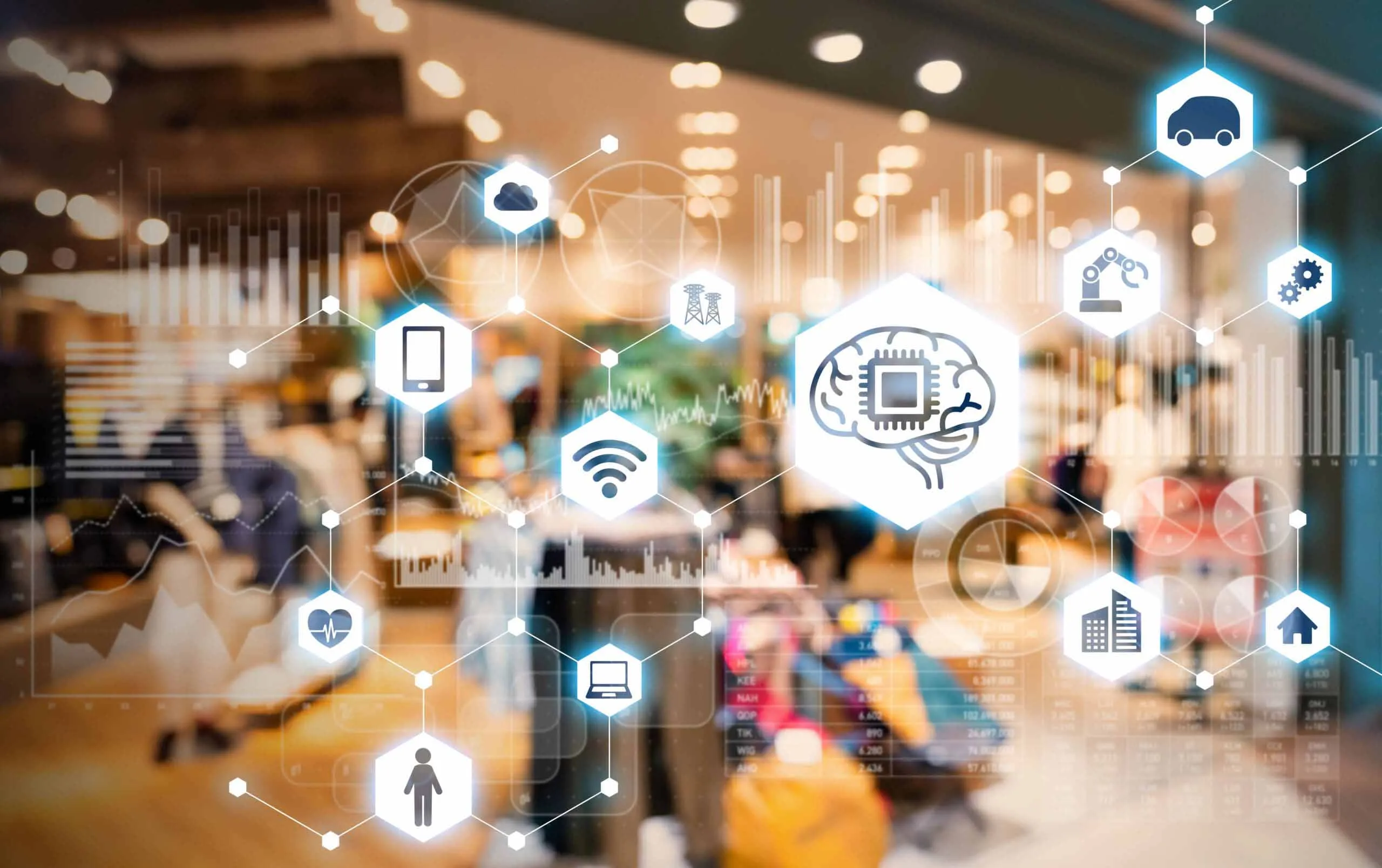The role of artificial intelligence in retail

As online shopping replaces more and more brick-and-mortar retail stores, AI in retail is taking center stage for enterprises. Artificial intelligence solutions in retail are helping retailers align their offerings with the expectations of their customers. The disruptive impact of artificial intelligence in retail is seen across the value chain and is emerging as a powerful tool for retail brands to gain a strategic advantage. Marketing research firm Tractica has predicted that global AI revenues will grow from $643.7 million in 2016 to an excess of $36.8 billion in 2025.
Artificial intelligence can automate in-store operations and reduce operational expenses in retail stores. It can replace sales personnel to assist customers in the store, reduce queues through cashier-less payment, replenish stock by real-time stock monitoring, and digitize store display and trial rooms.
AI solutions in retail can effortlessly improve customer engagement by building interactive chat programs. Chatbots can be an effective way to communicate with customers. They can answer frequently asked questions, recommend products, address grievances and collect valuable data from your customers before diverting the call to a telesales executive, if needed. The chatbots can be programmed to self-learn from past data to keep refining and personalizing their subsequent interactions with the customers.
Artificial intelligence solutions can also provide valuable information for pricing strategy. These applications help enterprises to analyze the efficacies of multiple pricing models before arriving at the optimal price for their products. Retailers can also adjust prices by competitive products and consumer demand.
AI-enabled logistics management can predict demands for products by scrutinizing historical sales, location, buying patterns, etc. AI-powered drones that can reach difficult corners and automatically update a central database with available inventory in real time have been developed for warehouse management. All aspects of the retail supply chain, including inventory, staffing, distribution and delivery, can be managed in real time by AI.
Artificial intelligence solutions in retail can offer a personalized shopping experience to customers. Technologies like biometric and face recognition can identify customers revisiting a store and remember their likes and dislikes. They can recommend products and design promotions for them. Advanced AI algorithms can look into demographic data, social media impressions and digital footprints of consumers to decode their interests.
Artificial intelligence in retail can also simplify product identification for customers. Customers can now take a picture of a product they like and then use the picture to search for a retailer selling it on the web. Machine learning retail software can classify millions of items from various sellers and categorize them for customers within seconds, making product search and comparison easier than ever.
Multichannel retail has made store operation complex. Store associates have to play multiple roles in a warehouse. Their job is no longer restricted to receiving goods, stocking them and managing inventories. They have to provide product information, keep track of promotional offers and handle merchandising. AI in retail can streamline the work of a store manager by automating back-office activities and using robotics for quality checks.
As retailers consider strategies like bringing AI to brick-and-mortar, we are also advancing technology on the backend in integrated facilities management (IFM). For instance, paper records are being replaced by mobile apps and browser-based programs, resulting in real-time communication with facility professionals. That will lead to the ability to produce data sets that can be used to facilitate promotional strategies such as appointment shopping.
With advanced analytics, retailers are able to predict their minute-by-minute foot traffic every season. Using this information, retailers can formulate strategic promotions to fill slower times. For example, a brand could offer a targeted subset of customers a reason to come into a store at a specified time to receive discounts, promotions or personalized experiences with added value.
D2C and Gen Z
Direct-to-consumer has spurred since the pandemic because it enabled brands to learn more, engage more and sell more to complement the unstable retail space and overloaded online marketplaces. D2C brands have seen the majority of sales growth come from their own channels, but online and offline models have pretty much converged. While more retailers are certainly going online, D2C brands are also opting for in-store distribution.
Gen Z rocks the retail industry. Not only are they retail customers, but they also make up the future retail workforce. This digital-savvy generation knows exactly what they want. Plus, the great news for retailers is that Gen Z loves shopping in-store. Digital means are essential to connecting on a more human level within the retail organization and redefining the customer journey map.